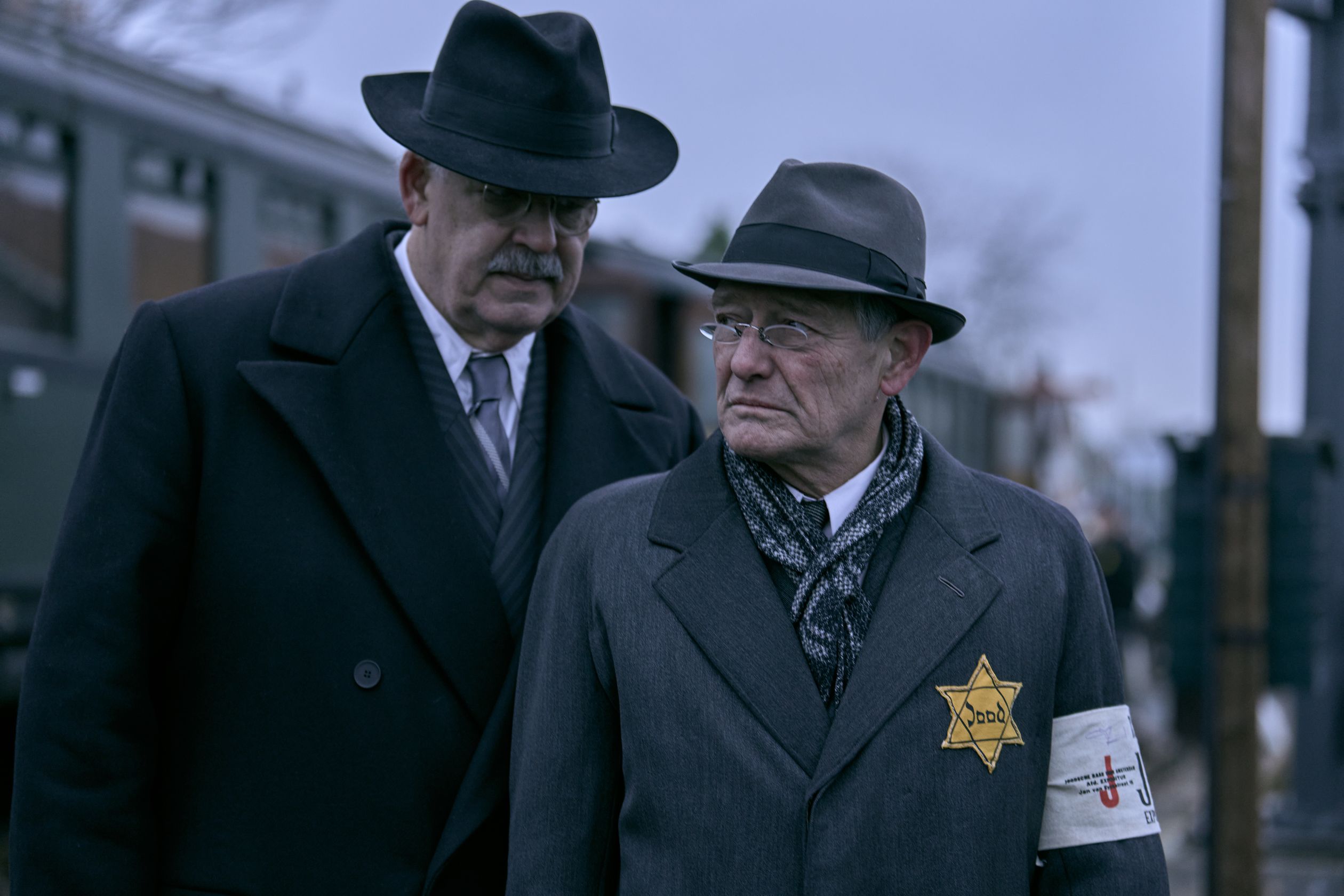
Dutch television is currently broadcasting De Joodse Raad (The Jewish Council), a historical drama about the organisation set up by the Nazi occupiers in 1941 to liaise with Amsterdam’s Jewish community. Two respected community leaders, Abraham Asscher and David Cohen, agreed to chair the council in the hope that they could spare their fellow Jews the kind of brutality that had already begun in Poland.
Pierre Bokma, one of the finest Dutch actors of his generation, portrays Cohen as a decent man agonising over the best way to survive when the devil knocks at your door. “I really think that we can prevent a great deal of misery by staying in dialogue with the Germans,” he says. And when his daughter raises the situation in the Polish ghettos, he reassures her: “The Jews have a different position here. We’re Dutch. We’re part of this society.”
Cohen’s fatal mistake is to believe he can make the Nazis see reason. It quickly becomes clear that the promise of constructive dialogue is a sham, and that Asscher and Cohen have been unwittingly co-opted into the annihilation of their own people. The council is told to end the February 1941 strike called by the proscribed Communist party to protest against the persecution of the Jews; when Asscher and Cohen reply they have nothing to do with it, the Germans round up and deport hundreds of Jews anyway. The distribution of Star of David badges is delegated to the council, and its records of names and addresses facilitate the mass deportations to the extermination camps. By the end of the war three-quarters of the Dutch Jewish population had been murdered, a higher proportion than any other occupied country.
I’ve thought a lot about David Cohen’s dilemma while watching Pieter Omtzigt during the tentative efforts to form a new Dutch government. Omtzigt is ambivalent about entering into any kind of partnership with Wilders: he spelled out his reservations about the PVV’s attitude to the constitution in his letter to Ronald Plasterk after the election, and initially said he would sit out the second round of talks while the other three parties drew up a legislative programme. But he also seems to labour under the misapprehension that Wilders has the same respect for the democratic system as everyone else. The evidence, starting with Wilders’s branding of the Dutch lower house as a “fake parliament”, suggests otherwise. While Omtzigt sees an extra-parliamentary cabinet as a means of rebalancing the relationship between ministers and parliament and improving legislative scrutiny, Wilders has made no secret of the fact that for him, it is a route to power. Omtzigt has even taken to defending the PVV against parties who question its democratic credentials. He chastised Frans Timmermans for his clumsy reference to “Gru Wilders and his 36 minions”, calling it a “serious insult to 36 fellow parliamentarians”.
But Omtzigt’s vision of a more robust and diligent parliamentary system depends on MPs exercising that diligence. Since the election on November 22nd the 36 PVV MPs (excluding parliamentary chairman Martin Bosma) have tabled 43 written questions to ministers; 17 have not scripted a single one. Omtzigt’s NSC, with 20 MPs, has put down 50 questions; the ChristenUnie has totted up 26 with a team of just three. Omtzigt may have been hoping to keep Wilders on side by leaping to the defence of his underwhelming, underworked crew, but demagogues are rarely tamed by appeals to their better nature. Wilders has signalled that the negotiations ahead will be “tough” and uncompromising, while his pointed attacks on Omtzigt after NSC pulled out of the last round of talks show where he will cast the blame if they fail.
David Cohen argues in De Joodse Raad that if the Jewish community does not co-operate with the Germans, they risk an even worse fate. Pieter Omtzigt seems gripped by a comparable anxiety: that if the cabinet talks collapse, Wilders will win more seats at NSC’s expense and all prospect of a stronger constitutional settlement will be lost. For all his diligence, Cohen ended up in Theresienstadt, though he survived the war. Let us hope that Pierre Bokma is not called upon to play Pieter Omtzigt in the dramatisation of the 2024 cabinet formation talks.